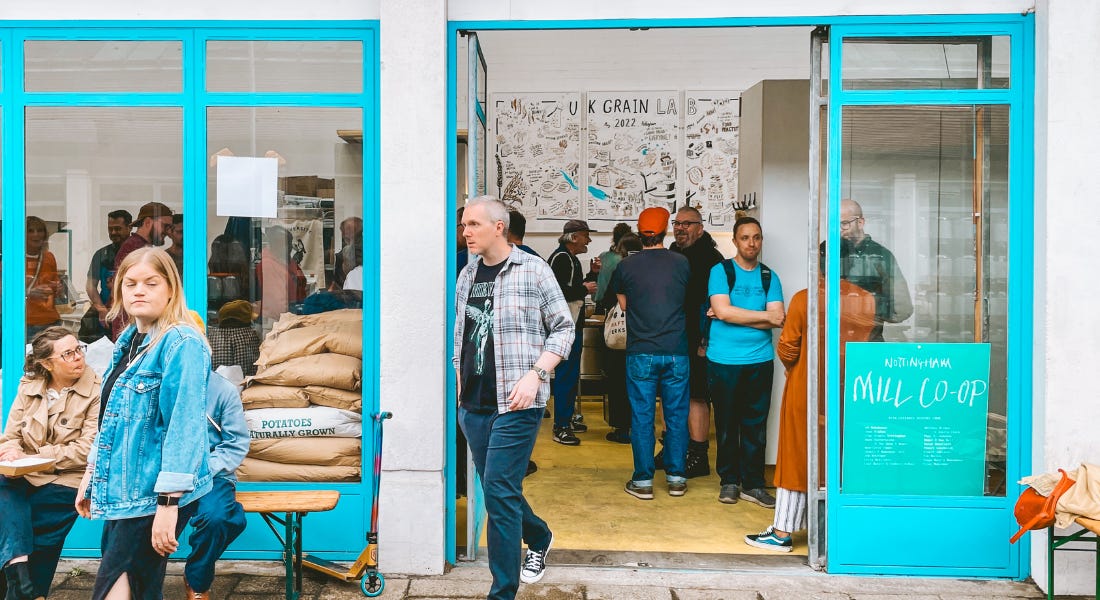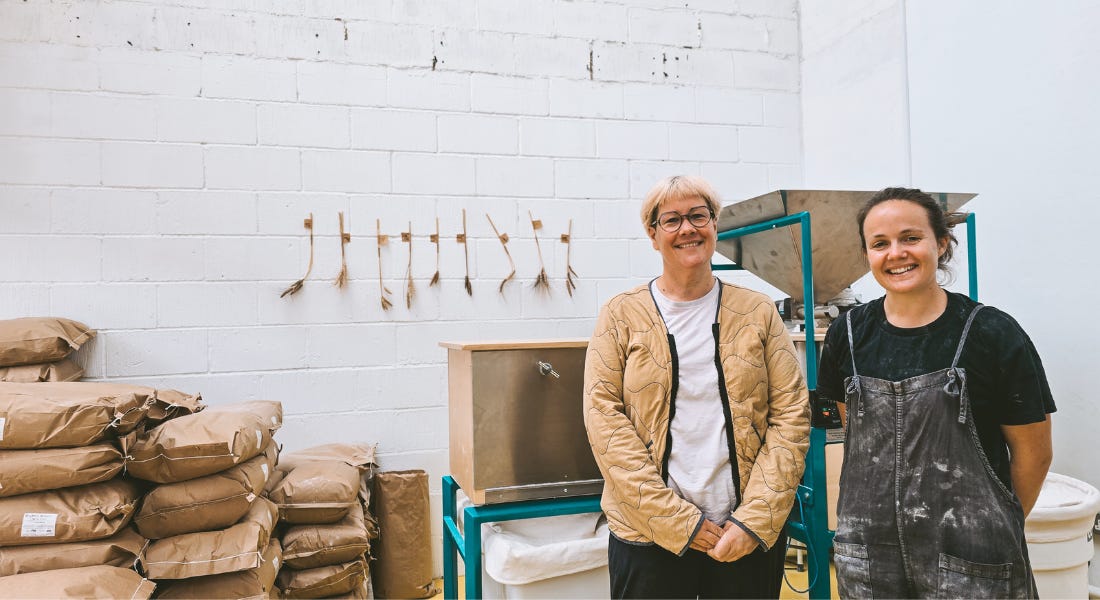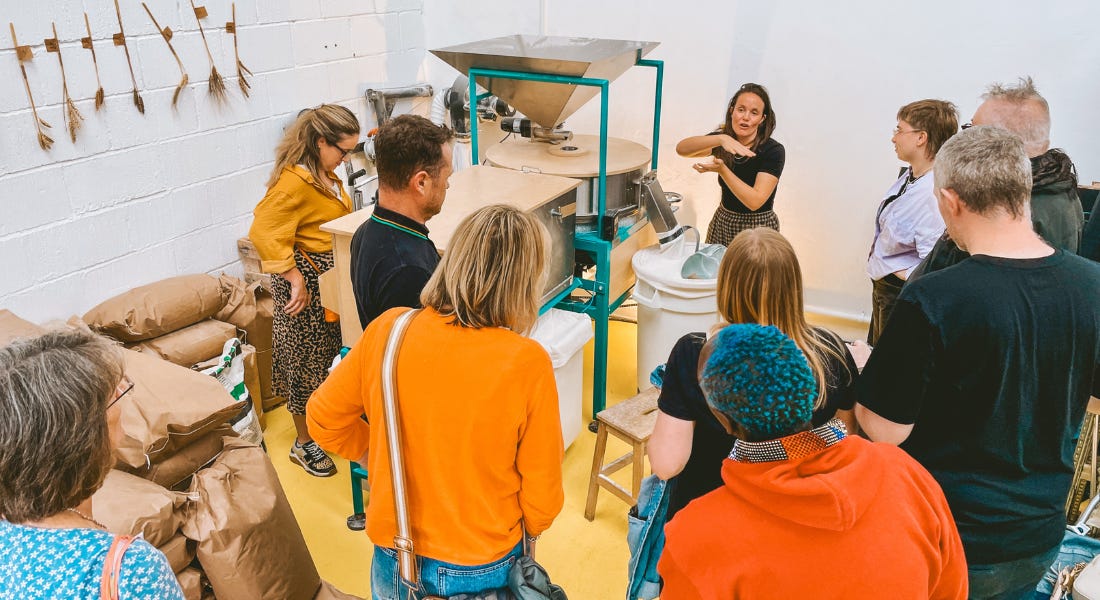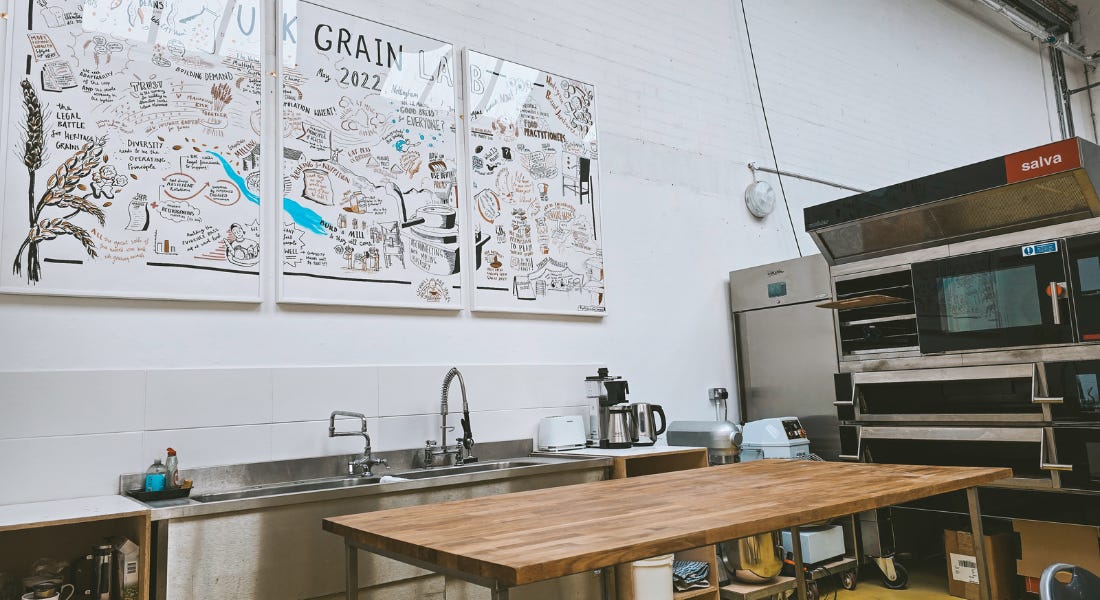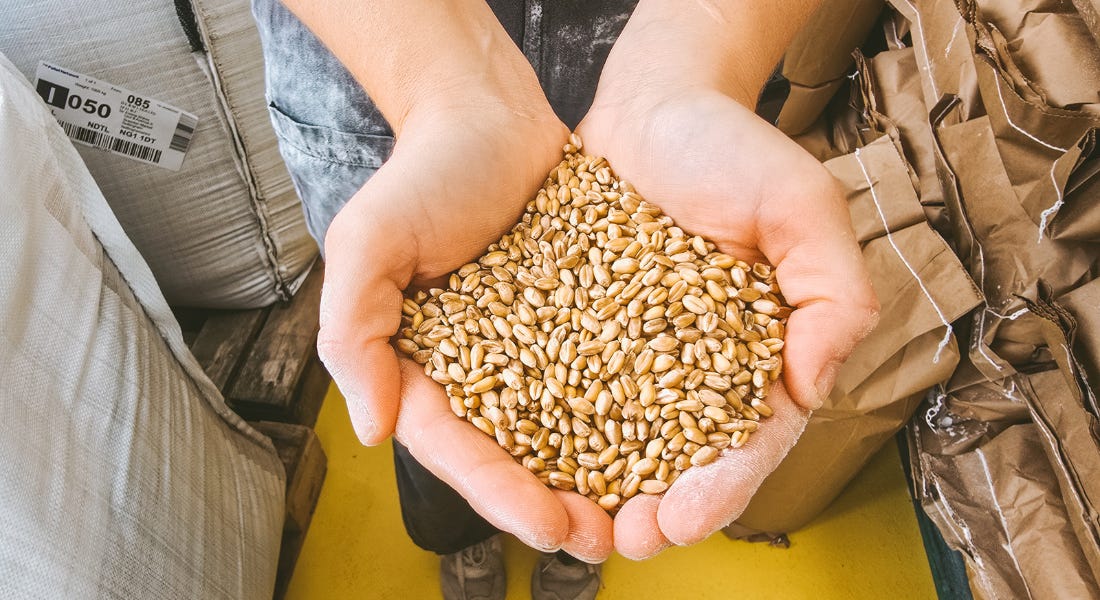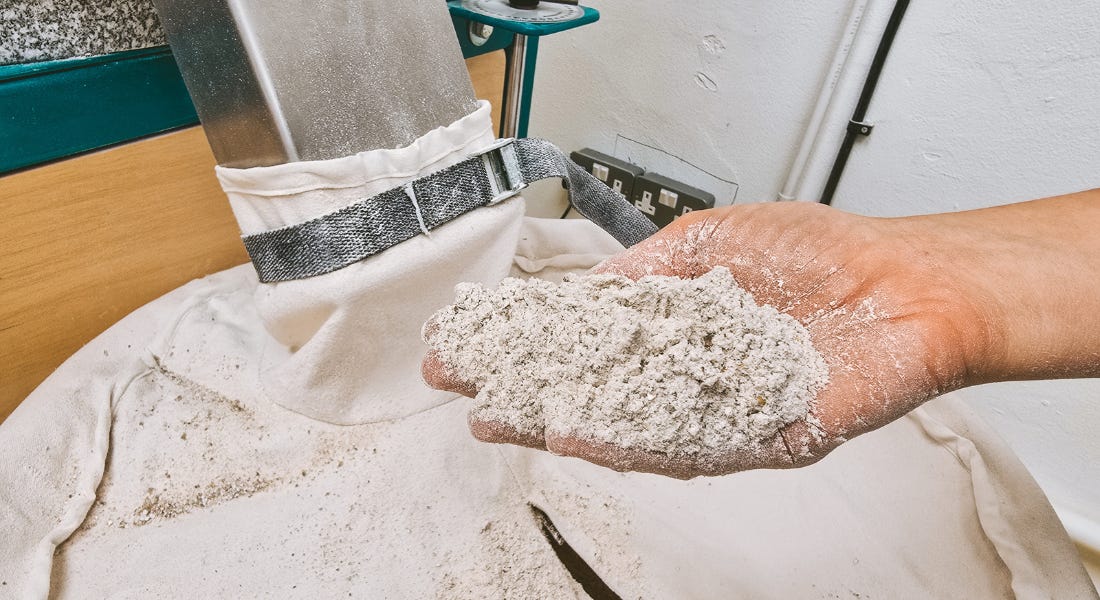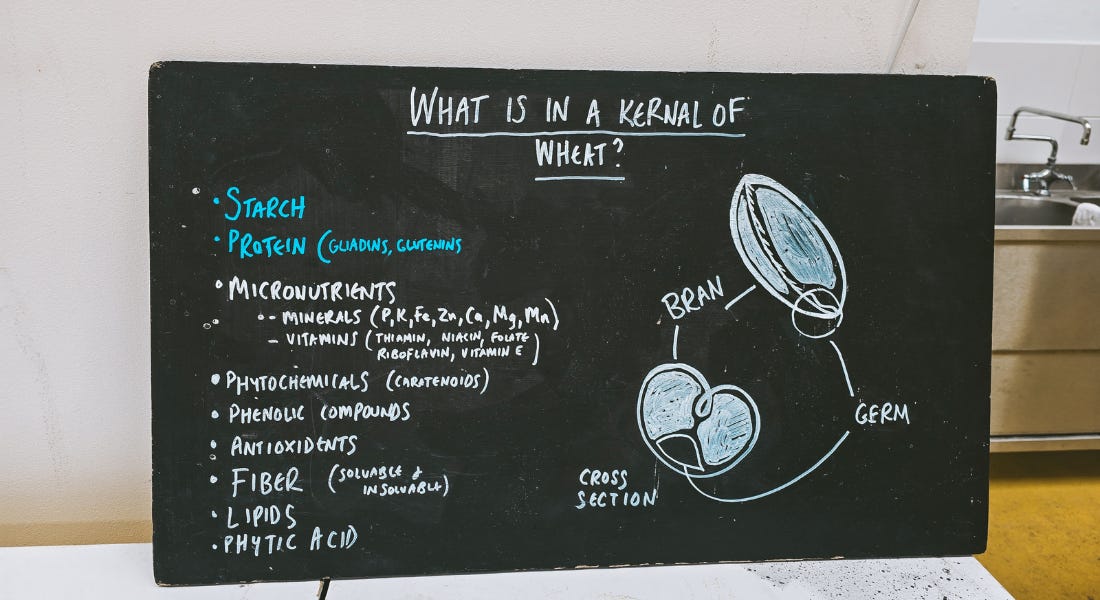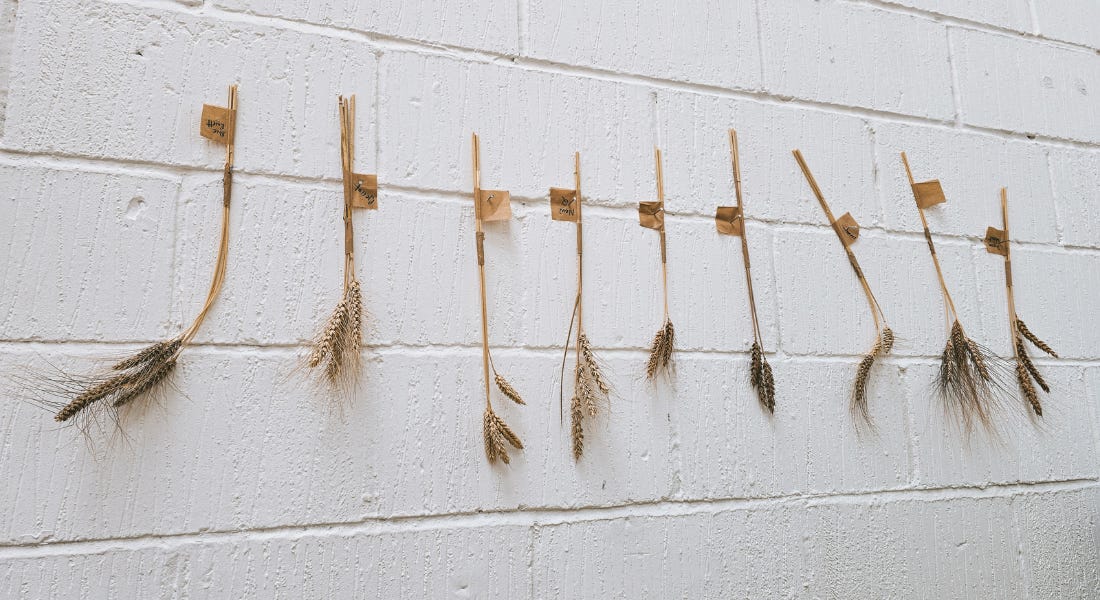The Nottingham Mill Co-op are milling flour in Sneinton Market — and they want you to start baking there too
They have launched a Crowdfunder to help with their expansion
Nottingham’s food scene is bursting with exciting ideas at the moment — and one of these is the expansion of the Nottingham Mill Co-op.
We spoke with founders Kim Bell from the Small Food Bakery and miller Emma Shires to find out about their new Crowdfunder, why the Co-op began, and the importance of knowing where your flour comes from.
Whether one of your favourite things to do in Nottingham is visiting Sneinton Market or if you’re a keen foodie, supporting the Nottingham Mill Co-op is worth doing. For more features and guides about the area, subscribe to The Notts Edit for free.
Flour power: Why the Nottingham Mill Co-op’s expansion is important for the local food scene
By Eve Smallman
Photos by The Notts Edit and the Nottingham Mill Co-op
I have been known to sit down at Working Man’s Kitchen in Sneinton Market (sometimes on a Thursday when pizzas are half price). When I have done this, I have often looked at the Nottingham Mill Co-op, which sits next door, and wondered about what it is exactly. It’s filled with huge bags of grains and a beautiful hand-built stone mill from northern Vermont.
On a different day, I set out to do just that, heading down, knocking on the door, and meeting Kim Bell from the Small Food Bakery and miller Emma Shires. I’m greeted by the warmth of the space, which has the noise of the mill whirring away, pens and papers with ideas on the tables, and different varieties of wheat stalks decorating the walls. Although the Mill Co-op has been around since 2021, in 2025, it moved into its own bigger space and has exciting plans to expand.
You might already know Kim from the Small Food Bakery in Lenton, which was named one of the top bakeries in the UK by the Good Food Guide in 2025. This bakery began as an experiment to look at how food can be localised. “I've done years and years of really interrogating food systems and meeting as many people locally as I could to see what ingredients we could buy directly, bringing them into the bakery and turning them into useful food for people,” she says. This led her to realise that Nottingham needed milling capacity.
Meanwhile, miller Emma was a ‘reluctant engineer’ who had always been very interested in where food came from. “I particularly became interested in milling as it’s one of the missing processes between farmers being able to sell directly and bakers being able to get hold of flour that they knew where it came from.”
From here, the Nottingham Mill Co-op was founded by Kim and Emma, and they are part of the implementation team along with Amy Warman, Ania Becker, and Stroma Sinclair. “We began with a focus on getting some more millers in the city at a small scale and understanding what that looked like,” says Kim.
The Co-op has since grown and reached the point of creating a Crowdfunder. Some of the rewards on this include flour and a recipe book, an introduction to milling, and a sourdough bread making workshop.
The aim of this is for the Nottingham Mill Co-op is to provide a low-cost and low-risk base for micro bakeries, as well as noodle and pasta makers. This involves a few different aspects. “One of these is to provide a space — that might sound like a really simple and basic thing to say, but it's really important that we have a space in the city to exist,” explains Kim. “We've got quite a niche interest in advocating for this kind of food economy, so having somewhere for people to just meet in the evenings is massively important just to make those connections.”
In terms of the building’s physical infrastructure, the Mill Co-op is aiming to set it up fully with an oven, mixer, fridge, pastry sheeter, and pasta extruder, along with important plumbing, electrics, and heating and lighting. Plus, the Co-op is also hosting workshops and helping people learn from each other.
Of course, one of the key aspects of the Nottingham Mill Co-op is the flour that’s being made. The wheat grains come from farmers (as much within the locality as possible), and all are organic. “I think I've been to every farm that I buy from and seen how the wheat is grown and what those farmers are doing sustainability-wise,” says Emma. It’s also not just important how they grow, but what they grow. “If they're growing heritage varieties or interesting varieties of wheat, that might be really good for flavour or for an environmental reason.”
Understanding where the grain has come from gives the chance to interrogate how it's been grown. “A massive disaster of our modern times in terms of environmental destruction has been the way farms spray with chemicals and have managed to degrade the soils,” Kim says. This is why, on a basic level, having bakers and millers building networks with farmers is key. “We're actually able to say to them, no, you can grow without the chemicals if you want, and we will pay you a bit more.”
Bringing milling back into the city is a brilliant way to make this process visible. “It provides people with a story about where flour comes from, and their ability to navigate or to question where their flour might be coming from,” Emma tells me — AKA not just picking up a bag of plain white flour in the supermarket.
Read more:
People are definitely more in tune with the processes of buying other foods. “We always think about provenance when it comes to meat and cheese or wine, but actually, all those things are luxuries. What we're interested in is how to make the very basic foods to a much higher standard,” Kim says. “Flour is a low-price way to engage in a very high-quality product.”
Having this connection to the food is something Kim sees a lot at the Small Food Bakery. “When I see my customers, it's really important to them to have a bakery that they go to. They love that they have a connection to the baker, and they know that the baker is connected to the millers and the farms. It makes them feel anchored in the place that they live.” She has even had people say they love living in Nottingham because they love coming to the Small Food Bakery. “I figure if we have more bakeries, then everyone will be happier.”
The Nottingham Mill Co-op’s ‘flour kitchen’ will help the city and wider county to understand more about the flour it’s kneading with and biting into — whether they’re visiting a bakery with specially milled flour or taking part in an expert-led workshop. “It’s about building a space that's very connected, where everybody can see what's going on, collaborate, and do amazing things,” Kim finishes by saying. In Nottingham’s ever-expanding food scene, it’s certainly an essential ingredient.
nottinghammillcoop.co.uk
@nottinghammillcoop
🤳 Keep up with us on socials on Instagram and TikTok
✉️ Send stories such as press releases and feature ideas to editor@thenottsedit.com
💰 Want to feature your business in The Notts Edit? Email Eve Smallman at editor@thenottsedit.com to receive our media pack
☕ Enjoying The Notts Edit? Buy us a coffee on Ko-Fi and help fuel our words



